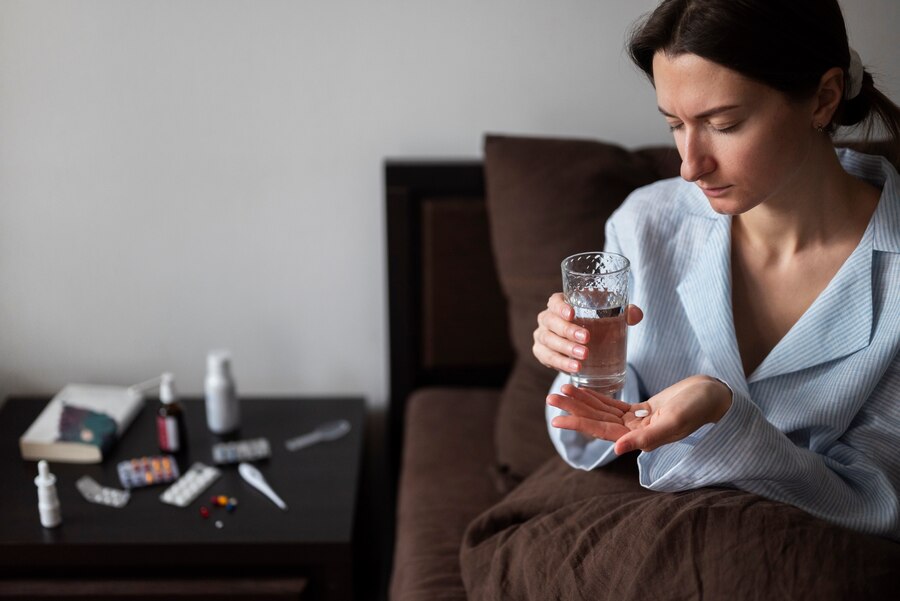All American Detox in Los Angeles, California, offers comprehensive residential rehab services for individuals struggling with substance abuse and addiction. Residential rehab, also known as inpatient rehab, provides a structured and supportive environment where individuals can focus entirely on their recovery without the distractions and triggers of everyday life. This type of rehab is ideal for those who need intensive care and a higher level of support to overcome addiction.
Residential rehab at All American Detox includes a variety of evidence-based treatments and holistic therapies designed to address the physical, emotional, and psychological aspects of addiction. With a dedicated team of professionals, state-of-the-art facilities, and personalized care plans, All American Detox aims to help individuals achieve lasting recovery and regain control of their lives.
Understanding Residential Rehab
Residential rehab involves living at a treatment facility for a specified period, typically ranging from 30 to 90 days or more, depending on individual needs and progress. During this time, patients receive round-the-clock care and supervision from a team of medical professionals, therapists, and support staff. The immersive environment of residential rehab allows for intensive treatment and constant monitoring, which can be crucial for those with severe addiction or co-occurring mental health disorders.
The structured daily schedule in residential rehab includes individual therapy sessions, group therapy, educational workshops, and recreational activities. This approach ensures that patients are engaged in their recovery process and receive comprehensive care that addresses all aspects of their addiction. The goal is to provide a safe and supportive space where individuals can focus solely on their healing and develop the skills necessary for long-term sobriety.
Benefits of Residential Rehab
One of the primary benefits of residential rehab is the removal of individuals from environments that may trigger or perpetuate their substance use. By staying in a controlled and supportive setting, patients can avoid the influences and stressors that may have contributed to their addiction. This separation can significantly enhance the effectiveness of treatment and increase the likelihood of sustained recovery.
Residential rehab also offers a higher level of medical and therapeutic care than outpatient programs. With 24/7 access to medical professionals and a variety of therapeutic services, patients can receive immediate attention for any physical or emotional issues that arise. This constant support helps to manage withdrawal symptoms, address mental health concerns, and provide the stability needed to focus on recovery.
Additionally, residential rehab fosters a sense of community and peer support. Living with others who are going through similar experiences can create a strong support network, providing encouragement, understanding, and accountability. These connections can be instrumental in helping individuals stay motivated and committed to their recovery journey.
Types of Residential Rehab Programs
All American Detox offers a variety of residential rehab programs tailored to meet the unique needs of each individual. These programs may vary in length, intensity, and focus, but all aim to provide comprehensive and effective treatment for addiction. Common types of residential rehab programs include short-term, long-term, and specialized programs.
Short-term residential rehab typically lasts 30 days and is designed for individuals who need intensive care but may not require a longer stay. This program focuses on stabilizing patients, beginning the detoxification process, and providing initial therapy to address the underlying causes of addiction.
Long-term residential rehab extends beyond 30 days, often ranging from 60 to 90 days or more. This program is ideal for those with severe or prolonged addiction who need more time to address deep-seated issues and develop sustainable recovery skills. Long-term rehab offers a more comprehensive approach, allowing for gradual progress and continuous support.
Specialized residential rehab programs cater to specific populations or needs, such as dual diagnosis treatment for co-occurring mental health disorders, gender-specific programs, or programs for adolescents. These tailored programs ensure that patients receive the most appropriate care for their unique circumstances.
Treatment Approaches
The treatment approaches at All American Detox are diverse and evidence-based, ensuring that each patient receives the most effective care for their specific needs. The primary modalities include individual therapy, group therapy, cognitive-behavioral therapy (CBT), and dialectical behavior therapy (DBT). These therapies address the psychological aspects of addiction, helping individuals understand the root causes of their substance use and develop healthier coping mechanisms.
Individual therapy provides one-on-one sessions with a licensed therapist, allowing for personalized attention and tailored treatment plans. This form of therapy helps patients explore their personal history, emotional triggers, and behavioral patterns, leading to deeper self-awareness and lasting change.
Group therapy offers a supportive environment where patients can share their experiences, gain insights from others, and build a sense of community. Group sessions often focus on specific topics related to addiction and recovery, providing education and fostering mutual support among participants.
Holistic Therapies
Holistic therapies play a crucial role in the treatment programs at All American Detox, addressing the physical, emotional, and spiritual aspects of recovery. These therapies complement traditional treatment approaches and offer additional tools for healing and personal growth. Common holistic therapies include yoga, meditation, art therapy, and acupuncture.
Yoga and meditation help individuals develop mindfulness and stress-reduction techniques, which are essential for managing cravings and maintaining sobriety. These practices promote physical well-being, emotional balance, and mental clarity, contributing to a holistic approach to recovery.
Art therapy provides a creative outlet for expressing emotions and exploring personal experiences. Through various artistic activities, patients can process their feelings, reduce stress, and gain new perspectives on their recovery journey. Acupuncture, an ancient practice, can help alleviate withdrawal symptoms, reduce anxiety, and promote overall well-being.

Family Involvement in Recovery
Family involvement is a critical component of the recovery process at All American Detox. Addiction affects not only the individual but also their loved ones, and involving family members in treatment can enhance the effectiveness of the recovery program. Family therapy sessions help address dysfunctional dynamics, improve communication, and rebuild trust within the family unit.
Educational workshops and support groups are also available for family members, providing them with the knowledge and tools needed to support their loved one’s recovery. By understanding the nature of addiction and learning healthy ways to interact, family members can become a valuable source of support and encouragement.
Involving family in the recovery process also helps to create a supportive home environment post-treatment. When family members are educated and engaged, they can better assist in relapse prevention and provide ongoing support, which is crucial for long-term recovery.
Aftercare and Relapse Prevention
Aftercare and relapse prevention are essential components of the treatment programs at All American Detox. Aftercare plans are tailored to each individual’s needs, providing ongoing support and resources to help maintain sobriety after completing residential rehab. These plans may include continued therapy, support group meetings, and regular check-ins with a recovery coach.
Relapse prevention strategies are integrated into the treatment process, equipping patients with the skills and tools needed to manage triggers and high-risk situations. Techniques such as stress management, healthy coping mechanisms, and developing a strong support network are emphasized to reduce the risk of relapse.
Continued care and support are vital for sustaining long-term recovery. All American Detox ensures that patients have access to resources and support systems that help them navigate the challenges of post-treatment life, fostering resilience and a commitment to sobriety.
Insurance and Financial Considerations
Understanding the financial aspects of residential rehab is crucial for individuals and families considering treatment. All American Detox works with various insurance providers to help cover the cost of treatment, making it more accessible to those in need. The admissions team assists patients in verifying their insurance benefits and understanding their coverage options.
For those without insurance or with limited coverage, All American Detox offers flexible payment plans and financial assistance programs. The goal is to ensure that financial constraints do not hinder access to quality treatment. Transparency in pricing and a commitment to finding workable solutions help make treatment more affordable.
Discussing financial considerations early in the admissions process allows patients and families to plan accordingly and avoid unexpected expenses. Understanding the available options and support can alleviate some of the stress associated with funding treatment and enable a smoother entry into the rehab program.
Admission and Assessment Process
The admission and assessment process at All American Detox is designed to ensure that each patient receives the most appropriate and effective care. The process begins with an initial consultation, where potential patients can ask questions, express concerns, and learn more about the available programs. This consultation helps determine if residential rehab is the right fit for their needs.
Once admitted, a comprehensive assessment is conducted to evaluate the individual’s physical, emotional, and psychological health. This assessment includes medical exams, psychological evaluations, and substance use history. The gathered information is used to develop a personalized treatment plan that addresses the unique needs and goals of the patient.
The admission process also includes orientation sessions to familiarize patients with the facility, staff, and daily schedule. This helps ease the transition into residential rehab and provides a clear understanding of what to expect during treatment. A thorough and supportive admission process sets the foundation for a successful recovery journey.
Find Residential Treatment at All American Detox
Residential rehab at All American Detox in Los Angeles offers a structured and supportive environment for individuals seeking to overcome addiction. With a comprehensive range of treatment approaches, including evidence-based therapies and holistic practices, patients receive personalized care designed to address all aspects of their recovery. Family involvement, aftercare planning, and relapse prevention strategies further enhance the effectiveness of the programs.
By understanding the benefits, types of programs, and financial considerations, individuals and families can make informed decisions about their treatment options. All American Detox is committed to providing high-quality care and support, helping individuals achieve lasting sobriety and a healthier, more fulfilling life.
FAQs
1. What is residential rehab, and how does it differ from outpatient treatment?
Answer: Residential rehab provides 24/7 care in a structured environment, allowing for intensive therapy and medical supervision. Outpatient treatment allows you to live at home while attending therapy sessions.
2. What can I expect during residential rehab in Los Angeles?
Answer: Expect a structured daily routine with medical monitoring, individual and group therapy, medication-assisted treatment (if needed), and opportunities for holistic healing. Our program focuses on addressing the underlying causes of addiction and building a strong foundation for recovery.
3. How long is a typical residential rehab program in Los Angeles?
Answer: The duration varies depending on individual needs and treatment goals. Our programs range from short-term to long-term options to accommodate different recovery journeys.
4. What are the benefits of residential rehab in Los Angeles?
Answer: Residential rehab offers a distraction-free environment, 24/7 support, and access to specialized therapies. It increases your chances of long-term recovery by providing a comprehensive approach to addiction treatment.
5. Will insurance cover residential rehab in Los Angeles?
Answer: Many insurance plans cover residential rehab. All American Detox can assist in verifying your coverage and understanding your benefits.
6. What is the role of family in residential rehab?
Answer: Family involvement is crucial. Our programs include family therapy and support groups to help loved ones understand addiction and provide support.
7. How can I prepare for residential rehab?
Answer: Gather necessary documents, inform your employer or school about your absence, and create a support system. Our admissions team can guide you through the process.
8. What happens after completing residential rehab in Los Angeles?
Answer: Our aftercare programs provide ongoing support, including outpatient therapy, support groups, and relapse prevention strategies. We help you transition smoothly back into your daily life.
9. What is the difference between residential and outpatient treatment?
Answer: Residential treatment provides a structured living environment with 24/7 care, while outpatient treatment allows you to live at home while attending therapy sessions. The best option depends on individual needs and circumstances.
10. How can I find an affordable residential rehab program in Los Angeles?
Answer: All American Detox offers financial assistance options and works with insurance providers to make treatment accessible. We can help you explore payment plans and find the best fit for your budget.
















